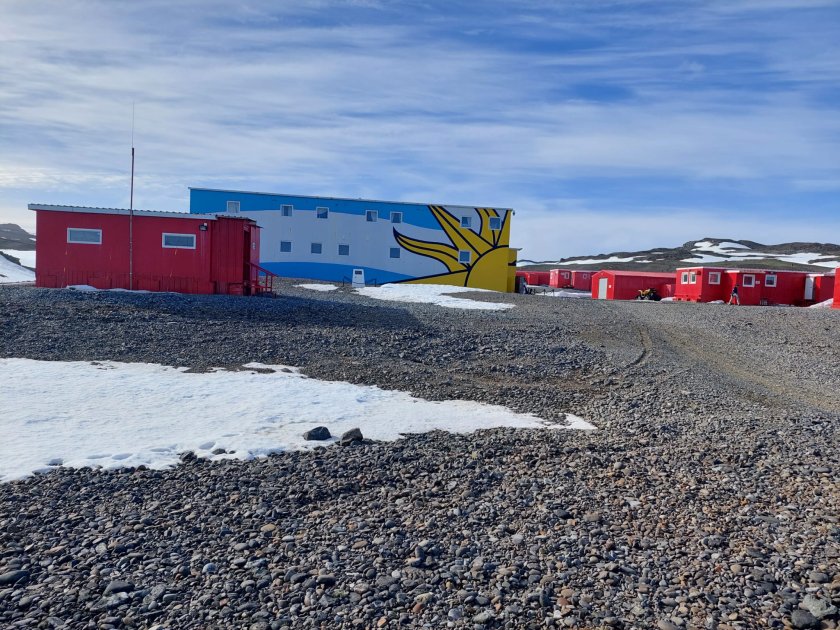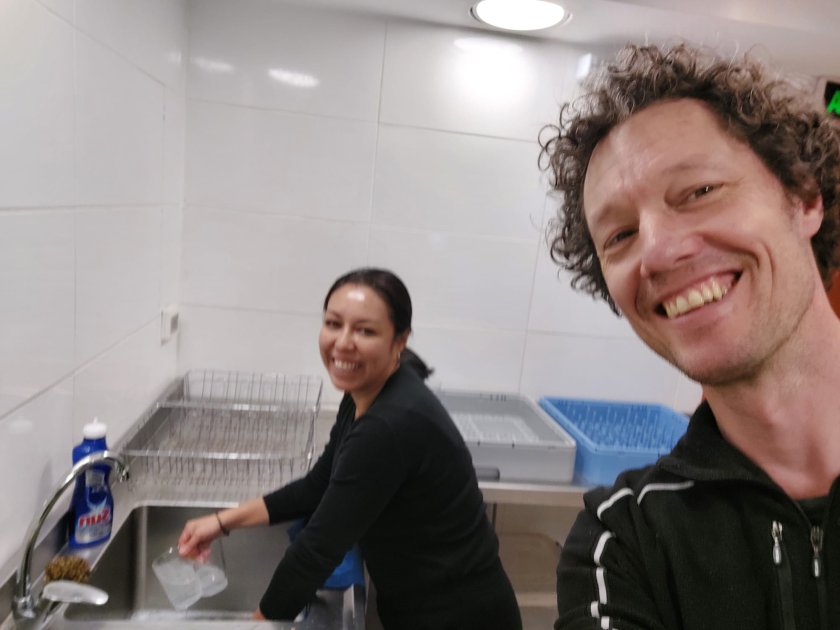
Blog post
Antarctica Blog 2: Lima– Amsterdam…Retornamos a la estacion
Machiel Lamers and Daniela Cajiao are ENP researchers undertaking a scientific expedition to Antarctica in the context of the ANTARC-SHIP project. Their expedition takes place from mid-December 2023 until the end of January 2024. Stay tuned with this blog to hear the latest research updates, stories and adventures coming out of Antarctica!
Lima–Amsterdam…Retornamos a la estacion
We are on King George Island, a few hours flying South of Punta Arenas, and part of the South Shetland Islands in front of the coast of the Antarctic Peninsula. The Fildes Peninsula on King George Island is a large ice free area and the most important logistical hub for national science programmes in this part of the Antarctic. Chile operates an airstrip here, as well as stations of the Airforce, the Navy and INACH, the science programme. Other countries also have their science stations located close to the airstrip, including China, Russia and Uruguay, and elsewhere on the island South Korea, Argentina, Poland and Brazil. For carrying out our research the next three weeks we are hosted at Uruguay’s Artigas station.

Interest in environmental stewardship and beyond
Why are we here? We are interested in environmental stewardship practices of science, logistical and tourism operations, i.e. activities, technologies and management measures aimed at care for the environment, reducing impacts and protecting nature. Fildes Peninsula is the most accessible part of Antarctica and also a growing hub for tourism activities. The last 15 years the airstrip has been increasingly used for commercial flights carrying thousands of tourists that are subsequently transferred to expedition cruise vessels, luxury yachts and sailing vessels. These, so called, air-cruise operations, spare a growing number of tourists and tourism operators a potentially rocky two-to-three day crossing of the Drake Passage. How are these growing tourism activities interact with the existing scientific and logistical operations? How do these interrelated human activities affect environmental stewardship efforts?
Data collection, Dutch dessert & dishwashing
The last couple of days we have settled in at Artigas and started with our data collection: conducting interviews with the station leaders, key personnel and researchers at the station, and making connections and appointments for doing interviews in the coming days at the other stations. One of the first things we had to do is get acquainted with new routines. For moving around on the island it is important that we have clear Spanglish radio communication with the station staff. For ease of identification as researchers from the Netherlands we decided to use Amsterdam as our radio name: “Central - Amsterdam. Vamos al lago. Amsterdam - Lima. Retornamos a Artigas.” Part of being a good guest at Artigas is also to do your chores when it is your turn. Today we have to set the table and do the dishes. But it is not just any other day, today is Christmas eve, which means extra greasy plates from the Uruguayan asado (BBQ). Next to doing the dishes we will add a Dutch stroopwafel touch to the dessert. We are happy and grateful to contribute to the running of the station on these special days.
